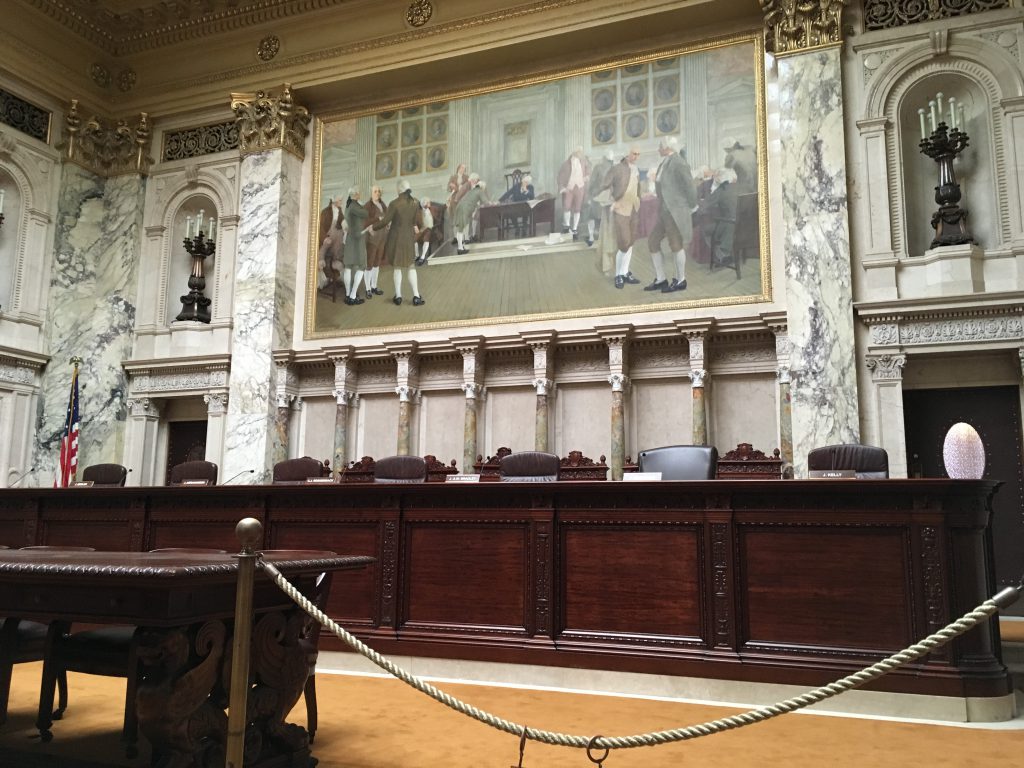High Court Ruling Restricts Expungements
Decision puts expungement of criminal records “further out of the reach," dissent charges.
Even the most inconsequential violation of a condition of community supervision makes a person ineligible for expungement of the crime from their record, the Wisconsin Supreme Court decided.
“Once an individual completes his term of probation, if it is undisputed that the individual violated at least one of his conditions of probation – as in this very case – circuit courts must deny expungement,” Justice Rebecca Grassl Bradley wrote for the five-member majority. She was joined by Justices Annette Ziegler, Patience Roggensack, Brian Hagedorn, and Jill Karofsky.
Justice Ann Walsh Bradley, joined by Justice Rebecca F. Dallet, dissented.
“The majority opinion places expungement further out of reach of those defendants who would benefit most,” Walsh Bradley wrote. “Although I agree with the majority that expungement requires satisfaction of conditions imposed by both the sentencing court and DOC, I part ways with the majority when it determines that the circuit court has no discretion to order expungement in the face of any rule violation, no matter how small.”
The court’s decision stemmed from a case involving Jordan A. Lickes‘ request to expunge three of four convictions related to a sexual encounter he had with a 16-year-old girl in 2012, when he was 19.
Lickes was charged with fourth-degree sexual assault, sexual intercourse with a child age 16 or older, disorderly conduct, and exposing his genitals or pubic area. The first three charges were misdemeanors; the fourth was a felony.
He pleaded guilty to the sex with a child charge and no contest to the others and was sentenced to 90 days in jail with work-release privileges. He was also placed on probation, but violated some of the rules and was sanctioned. DOC, however, did not seek to revoke his supervision.
His probation ended in 2016 and Lickes applied for expungement. His probation agent eventually certified that Lickes had successfully completed his supervision.
Walsh Bradley, in her dissent, noted that DOC’s standard rules of supervision require “that a person meet regularly with the probation agent and obtain approval from the agent prior to moving; changing employment; leaving the state of Wisconsin; purchasing, trading, selling, or operating a motor vehicle; borrowing money; or buying anything on credit.”
The rules also require those on supervision to adhere to conditions set by the court or their supervision agent, and that those conditions can change at any time.
“Does the majority’s determination mean that if, without agent approval, probationers from the border community of Marinette, Wisconsin cross to Menominee, Michigan to do grocery shopping, that they must be denied expungement? The majority apparently responds, ‘Yes. Under the standard rules of probation, it is a violation.’ ”
“How about the standard rule of buying nothing on credit?” Walsh Bradley continued. “What happens if the probationer, without agent approval, pays for gas with a credit card? ‘It’s out of our hands,’ responds the majority. The same apparently holds true if the probationer misses a single meeting with the probation agent.”
Yet “the majority proceeds to rigidly interpret ‘satisfaction’ in an all-or-nothing fashion,” she wrote. “In the majority’s view the circuit court has no discretion at all in deciding whether to grant or deny expungement.
“One would expect a determination of such reach to be supported with more than the majority’s cursory analysis,” which was three paragraphs long, she said. “And it is an analysis that runs counter to the statutory language, has no basis in the case law the majority cites, and thwarts the purpose of the expungement statute.”
Gretchen Schuldt writes a blog for Wisconsin Justice Initiative, whose mission is “To improve the quality of justice in Wisconsin by educating the public about legal issues and encouraging civic engagement in and debate about the judicial system and its operation.”
Court Watch
-
No Unemployment Benefits For Worker Making Homophobic Remarks
 May 17th, 2022 by Gretchen Schuldt
May 17th, 2022 by Gretchen Schuldt
-
Appeals Court Upholds Injunction Against Abortion Protester
 Mar 13th, 2022 by Gretchen Schuldt
Mar 13th, 2022 by Gretchen Schuldt
-
80% of State’s Judicial Races Uncontested
 Feb 20th, 2022 by Gretchen Schuldt
Feb 20th, 2022 by Gretchen Schuldt






















